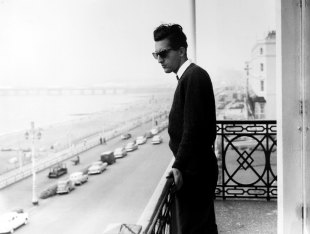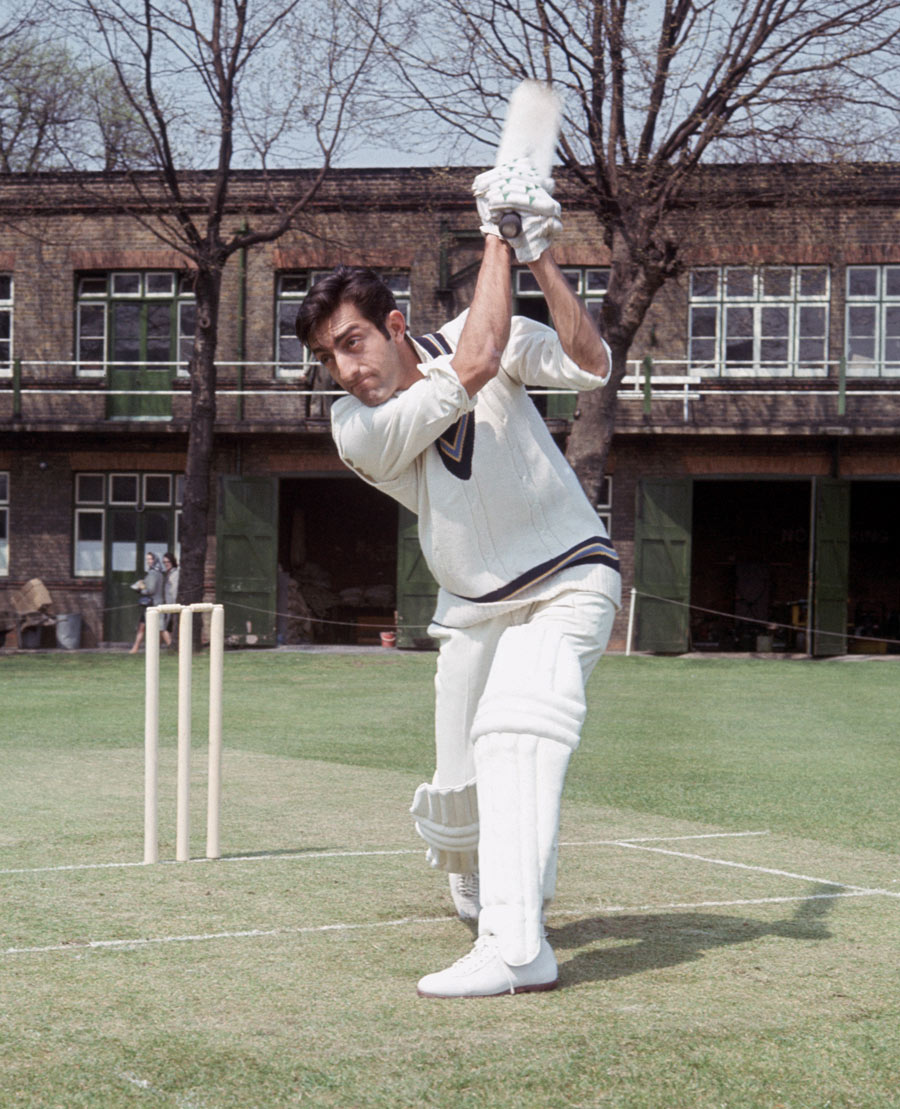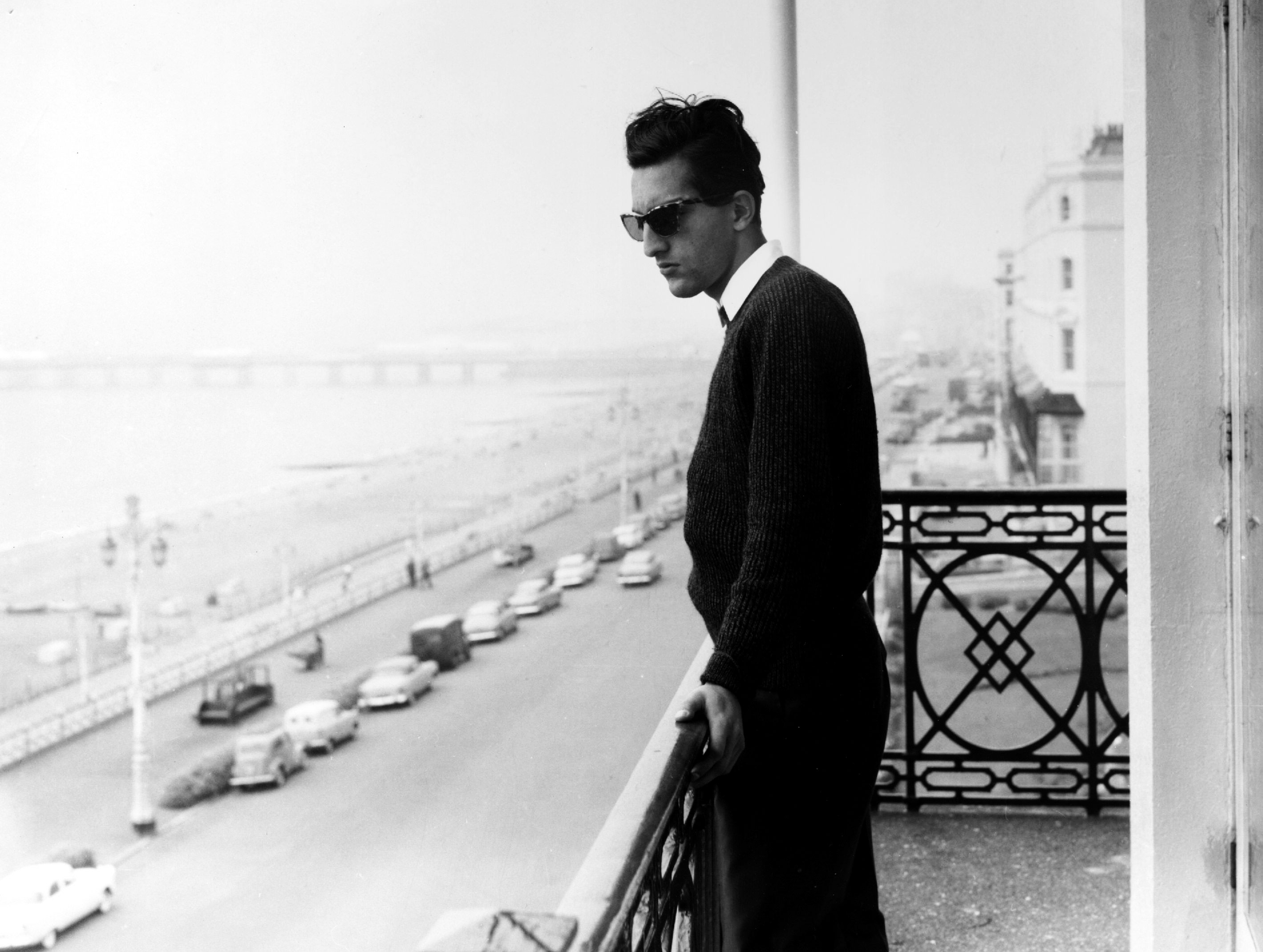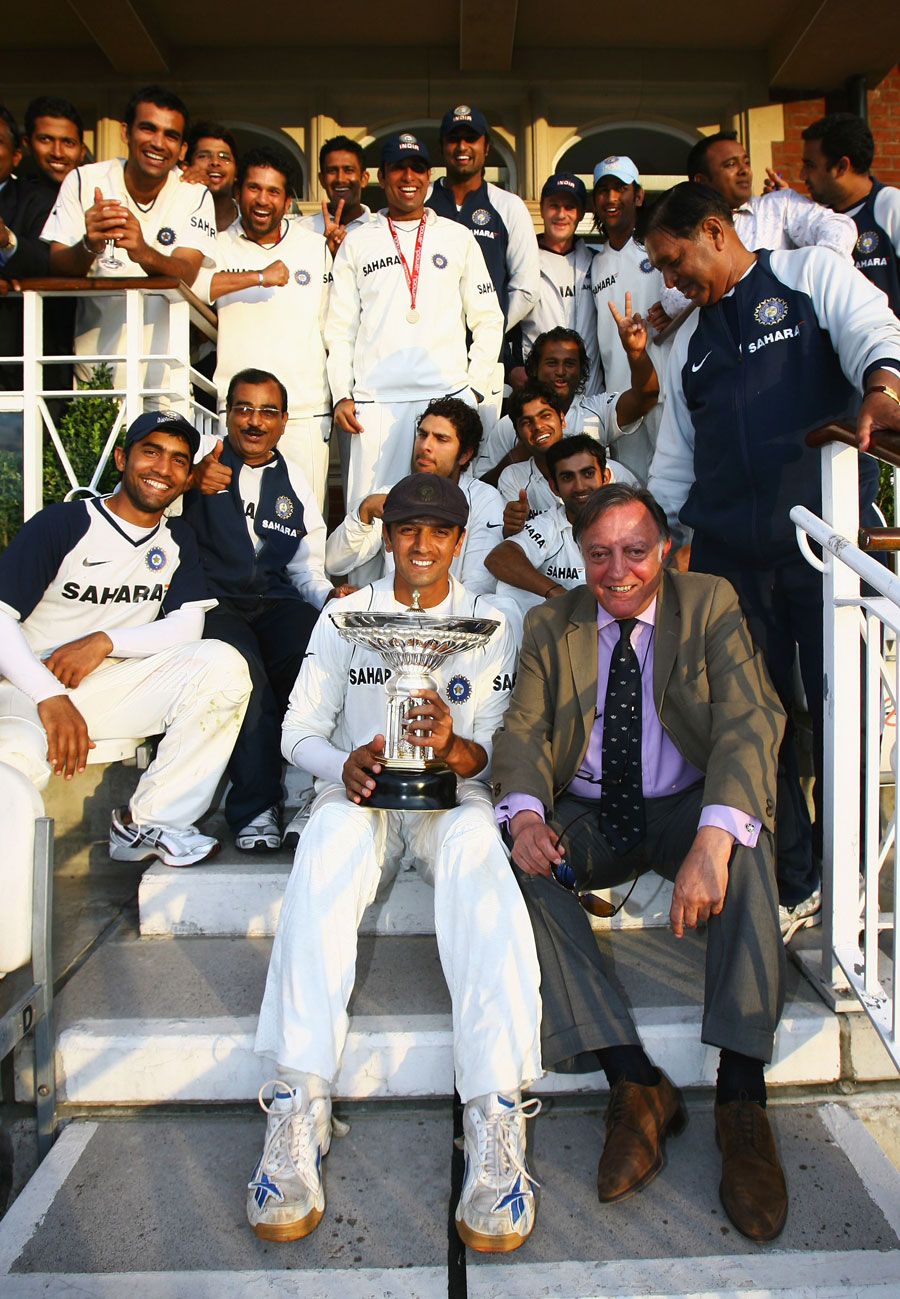'The most charismatic cricketer of his generation'
"It is a terrible news for me, he brought me up and guided me. I can't even express myself, it is one of my saddest days. He was a great human being, a great cricketer, a great fielder, shrewd captain, it is really sad. He always guided the youngsters. I was very close to him, so I can't really forget the way he brought me up. He was my first captain under whom I played. Whatever career I had, it stands on him."
Former India batsman Gundappa Viswanath is crestfallen at the passing of Mansur Ali Khan Pataudi
"It is an extremely painful loss for me. Unbearable and shocking loss. He was one of the greatest captains to lead India. He gave a new face to Indian cricket and emphasised on the role of quality fielding. He was primarily responsible for developing India's spin quartet in an aggressive role similar to what the West Indians had later in form of the pace quartet. He always believed that teams have to bowl at least 80 to 85 attacking overs out of 100 overs."
Erapalli Prasanna, the former India spinner, lauds Pataudi's captaincy skills
"It is a great personal loss, he was a very dear personal friend, he was my first captain, I learnt a lot from him. He was by far the best Indian captain to my mind of thinking. He was the first leader of Indian cricket who told everybody in the dressing room, 'look you are not playing for Delhi, Punjab, Madras, Calcutta or Bombay, you are playing for India. You are Indian.' That left a very very good mark on the minds of youngsters who played under him.
"His faith in the spinners was absolute and we all prospered under his captaincy, he guided us so comfortably and serenely, the spin quartet had the highest regard for him... We won't find the likes of him in a long, long time. His voice cannot be filled. A great, great chapter of Indian cricket has come to a close."
Former India captain Bishen Bedi says we won't see another Pataudi
"It is a big shock for me. It is too early for him to depart.. just 70 years. A great captain, always attacking and aggressive.. never defensive at any stage. He always focused on trying to win the match and would go all out to win. We had four spinners then, and I, especially, was extremely lucky to have had him as a captain."
Former India legspinner Bhagwat Chandrasekar is grateful to have had Pataudi as a captain
"Tiger Pataudi was my first captain. When I played my first Test in 1969, he was not just a nawab, royalty, but also already a superstar. When I walked out one morning to have breakfast at the CCI (Cricket Club of India) where the Indians players lived during a Mumbai Test, he invited me over to share a table with him and I'll never forget that. He was captain of India, a nawab and I was a debutant. He taught the Indian team how to win, he brought about its transformation convinced us that we could beat strong sides, even with limited resources, even by having basically three bowlers. He was aggressive but didn't shout on the field, nothing of the sort, his thinking about the game was that if you were playing for the country, you didn't have to be treated like children; you didn't need motivation or baby talk.
"He treated us all as equals, as a captain he was totally professional on the field, aggressive, attacking. It didn't strike me then, but when I played against other captains, I realised just how attacking he was, I realised he was the best captain I had every played under. Off the field he was an extrovert, he loved going out, socialising, late night partying and often he said to me, 'you take cricket too seriously, you're young, enjoy your life. If you are too emotional about it and take it too seriously, you will be an unhappy man'."
Former India opening batsman, Chetan Chauhan, remembers Pataudi's zest for life
"Tiger Pataudi was the most charismatic cricketer of his generation. To bat with almost zero vision in one eye and still to score nearly 3000 runs and half a dozen centuries in Test cricket tells you what a genius he was. He will be terribly missed and it's a huge loss to the game of cricket."
Former India captain Sunil Gavaskar puts Pataudi's achievements in context
"I am shocked to hear the news of Tiger Pataudi's demise. He was an exemplary individual, who guided Indian cricket to unprecedented heights, as batsman, fielder and captain. He revolutionised fielding standards in the Indian team, and across the country. In an age wherein a draw was considered as good as a win, Tiger Pataudi encouraged his players to go flat out for victory. He was an aggressive batsman who excelled in crisis situations, and showed the nation how to combat adversity. I join my colleagues in the BCCI to express my condolences at his passing away. His services to Indian cricket will never be forgotten."
BCCI president N Srinivasan pays tribute to Pataudi
"We are very sad to hear of Tiger Pataudi's untimely death. He was a legendary figure for his country, and is fondly remembered for all he contributed to Sussex Cricket. I met him at the recent Test match at The Oval when he was very much looking forward to visiting us at Hove later this year. It has come as a great shock to us all and our condolences from everyone associated with Sussex Cricket go to his family."
Sussex Chairman Jim May offers his commiserations on the death of Pataudi, who played 88 first-class matches for Sussex between 1957 and 1970
"He was a legend for us and we have never seen him play. He was a romantic figure, an absolute legend. I have always heard stories of Tiger, how he changed Indian cricket. He had a huge impact beyond his sheer performance in the cricket field. He was a huge inspirational figure. Even after so many years whenever you talk to legends of cricket, they always talk about him with awe and respect. He will definitely go down as an all time great, who had influenced not only on the cricket field but beyond it as well. He made the game popular in India with his sheer personality and performances. He led the team in the different way. He was a leader for us and he always stood with the current lot of players. In 2002, when we had problem with ICC with the central contract system, Mr. Pataudi backed us along with Madan Lal. I met him briefly in England at the Oval, after the Test series. We spoke briefly and now when I think about it, I regret that I couldn't spend more time talking to him."
Rahul Dravid wishes he could have spent more time with Pataudi
"I am extremely saddened hearing the news about Pataudi passing away. My heartfelt condolence to his family and may his soul rest in peace. I had known him personally and even met him a few times. There was lot of class and dignity about the man. Due to an accident he lost one eye and was yet successful at the international level, just goes on to show how good a player he was. The most positive thing about him was that he was very honest and always had the good of Indian cricket at heart."
Sourav Ganguly remembers Pataudi for his class and dignity
"It's a terrible loss to the cricketing world. I had the privilege of meeting him on a few occasions. World cricket will miss a hero like him. I really respected him."Sachin Tendulkar mourns the loss of a cricketing hero
"I am devastated, I had no idea he was in hospital ... he was a contemporary of my cousin Javed Burki, and what I heard from my cousins, and from his contemporaries, was that had he not lost his eye apparently, he was a genius of great proportions. Anyone who knows batting, knows that it's difficult to play with one eye, specially [to play] fast bowling. What he achieved with one eye, the sort of ability he had, what sort of a player he could have become... In Pakistan, to us he was also a cricketer who was a crowd puller."
Imran Khan, the former Pakistan captain, says Pataudi was a crowd favourite across the border as well












 . Rest in peace Nawaab Sahib........
. Rest in peace Nawaab Sahib........